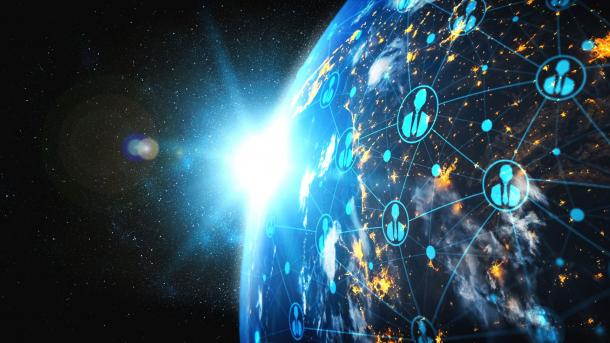
Vodafone Foundation donates €30,000 to support Mozambique over Cyclone Chido
Vodafone Foundation has pledged €30,000 to Save the Children in response to the devastation caused ...

Microsoft, Google, Amazon, Meta, Alibaba, and GSMA are committed to backing the World Meteorological Organization (WMO) initiative Early Warnings for All – which has been officially recognized as the top overriding priority of the WMO.
The private sector has a huge potential role to play in the achievement of Early Warnings for All, through leveraging the outreach of Big Tech and the power of Artificial Intelligence.
Microsoft is committed to improve internet speed and accessibility and ensure that reliable and timely alerts from national meteorological and hydrological services can be disseminated by web browsers and desktop platforms. Artificial intelligence and high-resolution satellites can be used to map at risk populations and in post-disaster damage assessment – as was the case in the earthquake in Turkey this year.
“This can enhance national and community responses during a disaster. When we work together we can get more done,” said Chris Sharrock, VP UN and international affairs.
Google wants to cooperate with WMO in pilot countries on floods and currently is working with the WMO co-sponsored Global Heat Health Information Network to tackle extreme heat and inform people how to stay safe and protect themselves.
“We see unprecedented progress on AI to make strides in Early Warnings For All,” said Yossi Matias, Vice-President, Engineering & Research at Google.
Amazon is committed to leveraging the power of the Cloud for global early warning systems. It is supporting the new WMO Information System 2.0 (WIS 2.0), which is the framework for Earth Systems (meteorological, hydrological, climate and ocean) data sharing in the 21st century. It is based on the principle that no Member should be left behind, said Nelson Gonzalez, head of global impact computing at Amazon Web Services.
Meta has had disaster response features since 2014, reaching millions of people in communities impacted by crises across 125 countries. It has safety check alerts, crisis pages, community help, information from first responders and nonprofit fundraisers, said Kaushik Sethuraman, Head of Programs, Social Impact at Meta.
Alibaba uses cloud innovation and AI to assist in disaster prevention and reduction, with a focus on Asia – for instance to support the recall of fishing vessels in typhoon weather, cleaning up rivers in flood season and to promote urban safety.
“We are committed to join WMO and Early Warnings For All to save more lives for the good of humanity together,” said Ye Huang, a general manager for Europe with Alibaba Cloud Intelligence.
GSMA is a global organisation that unifies the mobile ecosystem. 95% of the world’s population is covered by a mobile network and there are 5.4 billion unique mobile subscribers globally. According to Ms. Kimberly Brown, GSMA’s Head of Mobile for Humanitarian Innovation, Mobile for Development, GSMA welcomes the opportunity for the Association to help realise the EW4ALL’s ambition of everyone in the world being protected by an early warning system by engaging mobile network operators around the world, particularly those in the initiative’s target countries – to ensure they are engaged in efforts at the country level.
Dr. Elena Xoplaki, head climatology, climate dynamics and climate change group at the Justus Liebig University, Vice Chair of the ITU/WMO/UNEP Focus Group on AI and Natural Disaster Management, said it is vital to adapt to evolving technologies while addressing the changing needs and priorities in the field.
“Our goal is to support the Early Warnings for All initiative, particularly in vulnerable regions and climate change hotspots. To achieve this, we will expand our science efforts with targeted research on areas and hazards based on needs and priorities,” she said. The new Horizon Europe project MedEWSa (Mediterranean and pan-European forecast and Early Warning System again
Florence Rabier, Director-General, ECMWF, said there is significant participation from commercial entities in machine learning.
Machine learning and AI “presents a significant opportunity for developing countries as it no longer requires a massive supercomputer. It offers a chance for collaborative efforts, from a global to local level, to enhance meteorological prediction on a global scale,” she said.
“A growing number of big IT companies are interested in contributing to Early Warnings for All,” said WMO Secretary-General Prof. Petteri Taalas. “The challenge of natural and man-made disasters and anthropogenic climate change and water resource impacts have to be tackled as a joint venture of the public and private sectors,” he said.
Vodafone Foundation has pledged €30,000 to Save the Children in response to the devastation caused ...
The European Commission has adopted a decision to disburse €1 billion in loans to Egypt following ...
Opening the Helwan University clinic brings the total number of Safe Women Clinics to 48 ...


اترك تعليقا